Recruiters and hiring managers have a keen eye for sneaky resume red flags that might slip your mind as you’re writing a resume.
In 2024, Resume Genius’s Hiring Trends Survey voted “AI-generated resumes” as the biggest red flag that would make 53% of hiring managers less likely to hire a candidate.
To avoid getting rejected from jobs, it’s important to know how to dodge the resume red flags that set off alarm bells for hiring managers when they go through your application.
In a recent video interview with Jen Emmons, Senior Talent Strategist, she told us all about the red flags job seekers should look out for on their resumes:
If your resume has one of these red flags, don’t worry! We’re here to guide you through the most severe resume mistakes so you can impress employers and land that dream job in 2024:
1. Generic AI-generated content

With the introduction of generative AI tools in recent years, it’s easy to create a resume using ChatGPT in just a few minutes.
However, hiring experts agree that AI won’t solve all your resume problems. ChatGPT is helpful for brainstorming or creating a basic resume structure, but your resume might appear vague and lack personality unless you take the time to tailor it.
So if your resume is vague about your experience or doesn’t quite align with the job ad, it might signal to employers that you’re sending out resumes in a rush and aren’t especially interested in the role.
2. Lengthy employment gaps
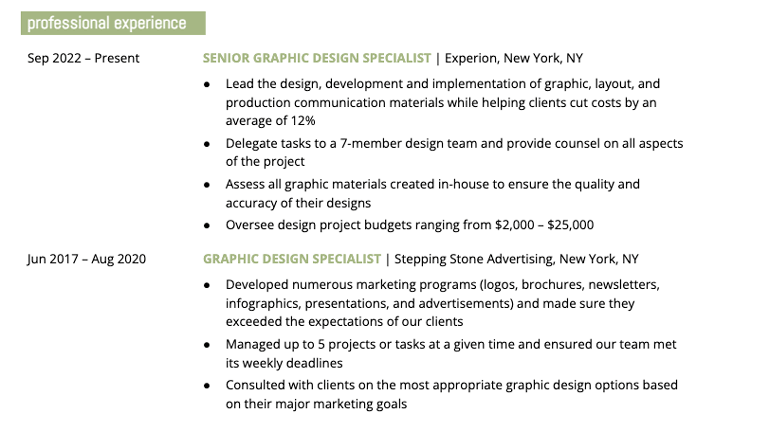
When employers see a years-long gap on your resume, they might be concerned that you’ll have trouble adapting to industry changes or that you’ll need extra training to catch up.
To address these concerns, it’s helpful to fill these gaps on your resume with activities that demonstrate your engagement in the field, such as freelance work, volunteering, or professional development courses.
List the courses you’ve taken on your resume, or include a link to an online portfolio you’ve been putting together. If you can show employers that you’ve used a career break to develop new skills or gain experiences that translate to your target role, that can add value to your candidacy that you’d miss out on otherwise.
Corissa Peterson, CPRW and Career Advisor at Resume Genius
Listing how you’ve been proactive during periods between jobs shows you’re committed to staying professionally active and growing, which can help ease any worries an employer might have.
3. Excessive job hopping
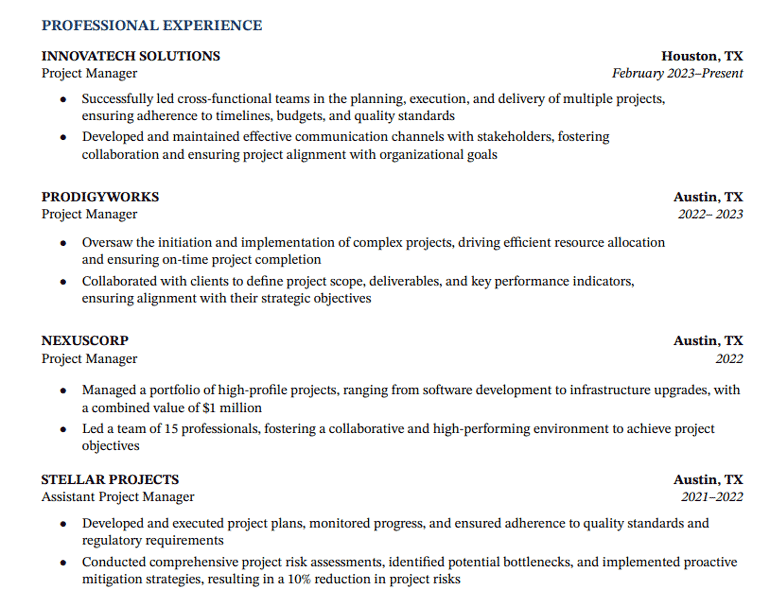
If you’ve had multiple jobs in the past few years or have a history of leaving positions quickly, you might look guilty of “job hopping.”
From an employer’s perspective, it’s a big risk to invest time, resources, and energy into someone who may quickly jump on the next opportunity. In fact, Resume Genius found that 1 out of 2 hiring managers see job hopping as a red flag.
One of the most common resume red flags that immediately captures my attention is a pattern of short-term employment stints at various firms. While change can be positive, excessive job hopping can indicate a lack of commitment or potential issues adapting to new environments.
Rich Lesser, Director at EC1 Partners
However, this can vary depending on your industry and field. For instance, roles in sectors like events, hospitality, retail, or more skill-specific fields like construction or computer animation often involve seasonal or project-based employment.
If you don’t work in a field where short-term employment is common, you should explain your situation as best you can by highlighting any contract, volunteer, or freelance work you’ve been doing on your resume.
4. Listing too many irrelevant jobs
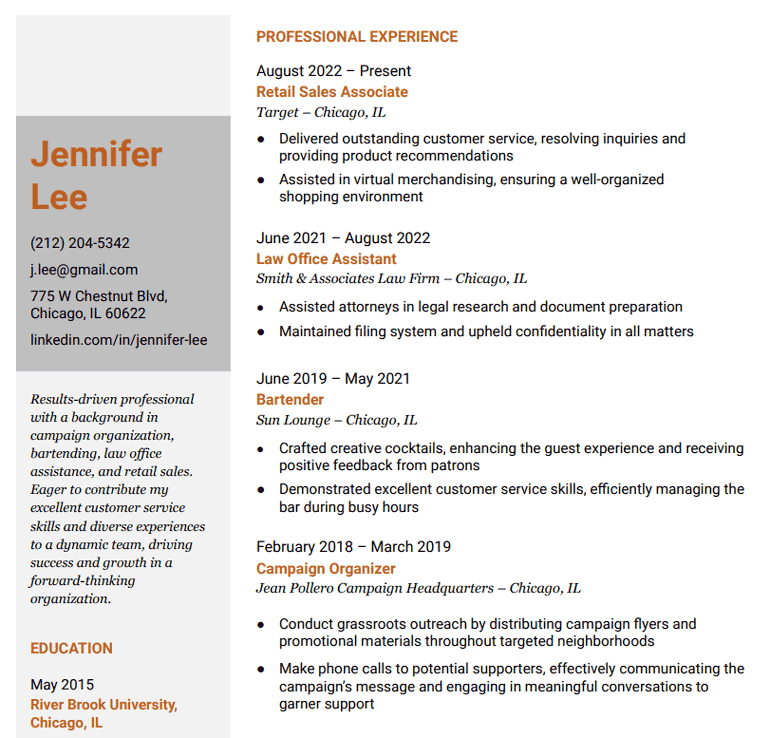
If you include too many different jobs on your resume, you risk looking indecisive.
Having diverse experiences can definitely be a strength, but it doesn’t always come across that way to employers.
Listing too many unrelated jobs on your resume makes it difficult to see how you’re qualified for the specific job you’re applying for, and makes it harder for employers to find the information they’re looking for.
Unless you’ve got decades of relevant work experience in your field, it’s best to limit the number of jobs on your resume. Pick the most relevant ones and make sure your resume sticks to one or two pages, depending on your experience level.
5. Oversharing personal information
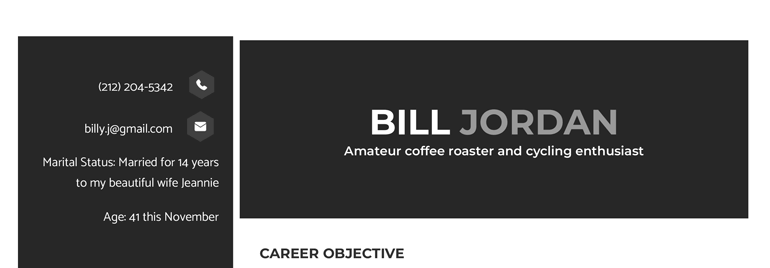
You’d probably be stunned by just how much personal detail people sometimes include on a resume, but a quick search of resume red flags on Reddit will confirm – it’s way too much.
Not only does including too many personal details come across as unprofessional, it also raises concerns about privacy and discrimination.
Employers are supposed to ensure fair hiring practices, and it makes their job easier when candidates don’t include information that has the potential to bring out bias.
Here are some bits of information better left off your resume:
- Marital status
- Date of birth or age
- Religious or political affiliations
- Any sensitive information (such as an ID number)
- Health or medical conditions
- Salary history or requirements
While it’s common practice to include an “Interests” section on your resume in the UK, they’re typically not included in the US. However, if your hobbies are directly related to the company you’re applying to (or the company culture), then feel free to add them.
6. Lies and embellishments
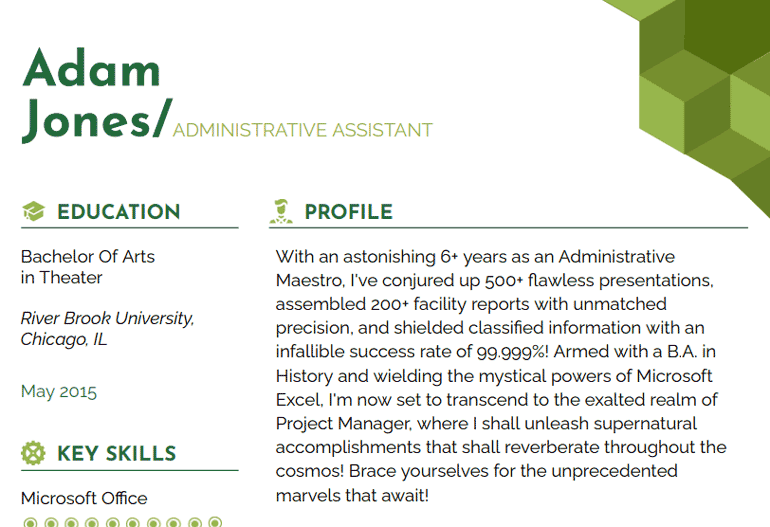
Embellishing your accomplishments or lying on a resume is a major red flag for employers and can have real consequences for your career. Here’s why:
- Lying on your resume erodes trust. Employers rely on resumes to evaluate your qualifications and make informed hiring decisions. If employers discover you’ve misrepresented your skills or achievements, they’ll question your integrity and honesty.
- You might be unprepared for the job. If you lie on your resume and get the job, you might not have the skills needed to handle the demands of the position. This can result in poor performance, missed deadlines, and potentially damaging outcomes for both you and the organization.
Embellishing your accomplishments isn’t as damaging as flat-out lying, but is still a major red flag for employers.
Whether it’s claiming that you single-handedly led a multi-million dollar project when you were just part of the team, or using too many resume buzzwords to impress employers, it’s best to be straightforward and honest on your resume.
7. Careless mistakes

A simple mistake on a resume is one of the most common resume red flags, and can be enough to get your resume tossed out.
Resume mistakes like typos and spelling or grammar errors indicate to employers that you have poor attention to detail or haven’t given your application the time and effort it deserves.
It’s easy to miss a careless mistake on your resume, especially when you’ve been staring at it all day. So here are some tips to help you catch any errors before you submit your application:
- Proofread your resume — and then proofread it again
- Use Grammarly or spellcheck in Word to correct errors
- Have a friend or family member check your resume
8. Noticeable contradictions
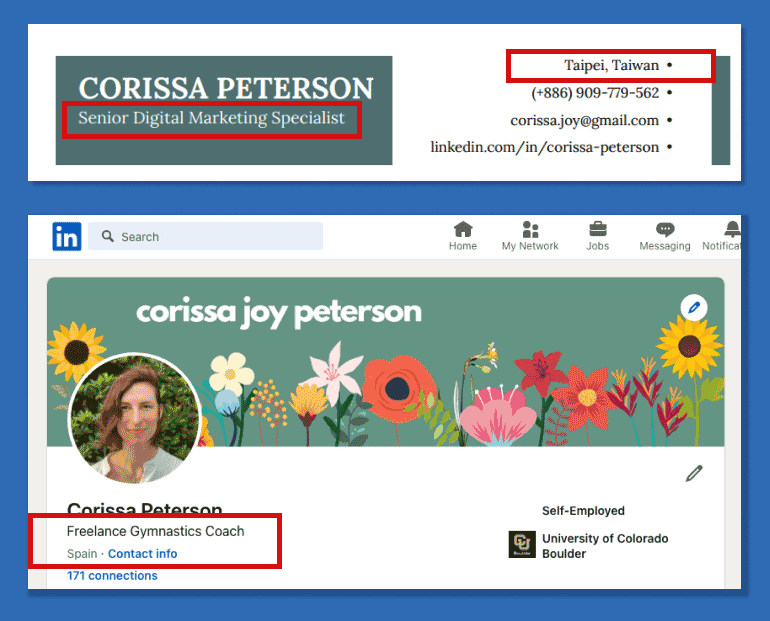
Everything about your employment history and experience should line up perfectly. If there are overlapping dates between jobs, for example, you need to explain the situation.
And employers are checking. The Harris Poll shared that 7 out of 10 employers research a candidate’s social media profiles, so it’s important to be consistent.
If you write one thing on your resume and something different on your LinkedIn profile, that’s a huge red flag for employers because it looks like you’re misrepresenting your work history.
When a prospective employer receives your resume, one of the first steps they’ll often take is reviewing your LinkedIn profile. If there are discrepancies between your job titles, companies, or employment dates, it can raise concerns.
Dr. Kyle Elliott, Founder and Tech Career Coach at CaffeinatedKyle
To prevent any confusion that could hurt your chances of getting an interview, make sure all of your professional social media profiles align with what’s on your resume.
9. Poor formatting and design
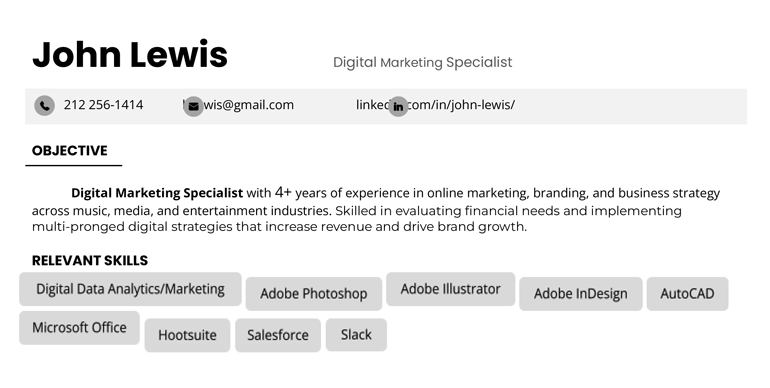
It’s no secret that a poorly-formatted resume can land your application in the “no” pile, and there are plenty of bad resume examples out there that show you what not to do.
A Zippia survey reported that over 40% of recruiters are turned off by poor resume design. Avoid this resume red flag, as it might send the message that you have poor attention to detail and don’t care about the quality of your work.
To come across as the professional candidate you truly are, make sure your resume follows formatting best practices, and remember to keep your design simple.
You can try using a pre-formatted resume template that’ll showcase your experience and qualifications in a clear, visually pleasing way.
You’re now all set to avoid red flags on your resume for the upcoming year. Good luck with your job hunt!
Build your resume in minutes
Use an AI-powered resume builder and have your resume done in 10 minutes. Just select your template and our software will guide you through the process.
Sources
- PR Web, “Social Media Integral to Recruiting as Most Businesses Use It to Source, Research and Screen Candidates”
- Resume Genius, “26+ Resume Statistics of 2024”
- Resume Genius, “4 Reasons Why AI Isn’t the Solution to Your Resume Needs”
- Resume Genius, “Communication Named #1 Soft Skill in AI-Influenced Workplace”
About Resume Genius
Since 2009, Resume Genius has combined innovative technology with leading industry expertise to simplify the job hunt for people of all backgrounds and levels of experience.
Resume Genius’s easy-to-use resume builder and wide range of free career resources, including resume templates, cover letter samples, and resume writing guides, help job seekers find fulfilling work and reach their career goals. Resume Genius is led by a team of dedicated career advisors and HR experts and has been featured in The New York Times, Forbes, CNBC, and Business Insider.
For media inquiries, please contact us.














